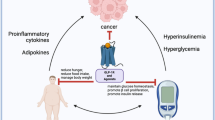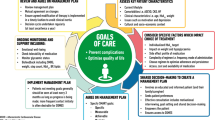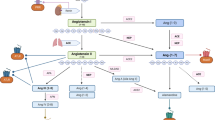Abstract
The peptide catestatin is produced from the precursor protein chromogranin A. Apparently, catestatin regulates autonomic nervous system function through blockade of ganglionic nicotinic acetylcholine receptors. A recent study suggests that genetic polymorphisms affecting catestatin may have a bearing on human blood pressure regulation. In a study in autonomic failure patients, inhibition of carbohydrate reabsorption with the alpha glucosidase inhibitor acarbose attenuated postprandial hypotension. The study may be therapeutically relevant. The neuronal norepinephrine transporter affects cardiovascular regulation through combination of central nervous and peripheral mechanisms. In a new study, pharmacological norepinephrine transporter inhibition elicited a profound pressor response in patients with central autonomic failure due to multiple system atrophy. Blood pressure did not respond in patients with peripheral autonomic neuropathies. The investigators suggest that the pressor response results from peripheral norepinephrine transporter inhibition that is unopposed by a central sympatholytic effect. In vitro, human growth hormone has a neuroprotective effect. A small placebo-controlled clinical trial evaluated the safety of human recombinant growth hormone treatment in patients with multiple system atrophy. The intervention was well tolerated. Unfortunately, the study was to small to evaluate efficacy.
Similar content being viewed by others
References
Rao F, Wen G, Gayen JR, Das M, Vaingankar SM, Rana BK, Mahata M, Kennedy BP, Salem RM, Stridsberg M, Abel K, Smith DW, Eskin E, Schork NJ, Hamilton BA, Ziegler MG, Mahata SK, O’Connor DT (2007) Catecholamine release-inhibitory peptide catestatin (chromogranin A(352-372)): naturally occurring amino acid variant Gly364Ser causes profound changes in human autonomic activity and alters risk for hypertension. Circulation 115(17):2271–81
Shibao C, Gamboa A, Diedrich A, Dossett C, Choi L, Farley G, Biaggioni I (2007) Acarbose, an {alpha}-Glucosidase Inhibitor, Attenuates Postprandial Hypotension in Autonomic Failure. Hypertension
Shibao C, Raj SR, Gamboa A, Diedrich A, Choi L, Black BK, Robertson D, Biaggioni I (2007) Norepinephrine Transporter Blockade With Atomoxetine Induces Hypertension in Patients With Impaired Autonomic Function. Hypertension
Holmberg B, Johansson JO, Poewe W, Wenning G, Quinn NP, Mathias C, Tolosa E, Cardozo A, Dizdar N, Rascol O, Slaoui T (2007) Safety and tolerability of growth hormone therapy in multiple system atrophy: A double-blind, placebo-controlled study. Mov Disord
Author information
Authors and Affiliations
Corresponding author
Rights and permissions
About this article
Cite this article
Jordan, J. Research highlights from the literature. Clin Auton Res 17, 149–152 (2007). https://doi.org/10.1007/s10286-007-0419-y
Published:
Issue Date:
DOI: https://doi.org/10.1007/s10286-007-0419-y




